Politics

State Minister for Foreign Affairs Md Shahriar Alam. File Photo: UNB
From all of the state's recent engagements with its fellow members of the international community, one thing becomes abundantly clear: the next parliamentary elections to elect the country's 12th Jatiya Sangsad, set for December 2023, represent an issue of serious concern to these stakeholders in Bangladesh's future. We know this from the fact that almost all of them are being quite blunt about it, and the premium that has been placed upon it in recent talks or meetings or any other form of engagement really, that most representatives of these countries have had with their Bangladeshi counterparts.
Take the recent visit of a senior US State Department official for example - to be sure, the US has been the country taking the lead on trying to restore some of the vigour in Bangladesh's democracy. In remarks to the local press, US deputy assistant secretary Afreen Akhter said that Washington was closely working with Bangladeshi civil society for a free and fair election in the country.
"Our USAID mission is working very closely with civil society members here for a free and fair election," Akhter told reporters after a meeting with acting foreign secretary Real Admiral (retired) Md Khurshed Alam at his Segunbagicha office in the city, where she said they discussed a wide range of bilateral issues, including US support for 'free and fair' elections in Bangladesh.
During her stay in Dhaka, she also held a meeting with the ruling Awami League's international affairs secretary Shammi Ahmed, the main opposition Bangladesh Nationalist Party standing committee member and the party's international affairs committee chief Amir Khasru Mahmud Chowdhury, and Jatiya Party chairman's advisor Mashrur Mowla at the residence of US embassy's deputy chief of mission Helen LaFave. Of course, the US envoy in Bangladesh, Ambassador Peter Haas, has been one of the strongest voices among the ambassadors advocating for a free and fair electoral process in 2023.
Shortly after arriving to take up his new post, Haas held a meeting with the Chief Election Commissioner, and afterwards said the US wants a general election in which the Bangladeshi people can choose their leaders and that the holding of a credible election was the job of the EC and the entire society. He was also at pains to point out that the US does not care who wins the election. It just wants an election where the people of Bangladesh can choose their leader.
Similarly, the British high commissioner, Robert C. Dickson, has also been putting himself about, and committed his office to the purpose of levelling up the playing field somewhat, e.g. by entertaining delegations of the opposition BNP, that acted to grant the party some much-needed succour in hard times. One of the narratives regarding the BNP that the government has worked hard at over the years is to paint it as some sort of pariah with no international acceptability. But a string of foreign embassies' recent meetings with the BNP, which were then prominently paraded in front of the press, have been effective in dispelling that point of view.
Speaking at a Bangladesh symposium organised by the Centre for Governance Studies this week, Dickson said ensuring institutional quality is key to continued economic growth for Bangladesh in next decade and beyond, and holding a free and transparent election is important to ensure the quality of institutions.
"Quality institutions are key to make the foreign investors confident that they can invest here reliably. The key to ensure institutional quality in a democratic system is to hold a fair and transparent election. So I very much hope that over the next year or two we would see that in Bangladesh," he said, while speaking at a discussion titled 'Untangling the myriad of multilateral frameworks in the Indo-Pacific'.
One of the most telling incidents of all occurred in early July, when 14 envoys representing the membership of the OECD, a mostly-industrialised nations' club that includes a number of donor nations engaged in international development around the globe, that have missions in Dhaka, dropped in at the Election Commission on surprisingly short notice, and laid out their interest in elections in Bangladesh.
At the meeting, they are said to have expressed their strong desire to see a peaceful and participatory general election in Bangladesh, that ensures the voting rights of all citizens. Emerging from the meeting, Ambassador of Switzerland to Bangladesh Nathalie Chuard said at a press briefing that the OECD countries, placing the strong importance on democratic values, welcomed the commitment made by the Bangladesh Election Commission to hold free, fair and credible national elections.
"To uphold and ensure citizens voting rights, make the country's democracy more robust and effective, ensure an electoral environment that is participatory and free from violence and intimidation, and support the media and civil society to play critical roles are shared responsibilities for all stakeholders, including political parties," she said.
"As longstanding and committed friends and partners of Bangladesh, our countries stand ready to consider any requests for support from the Bangladesh Election Commission to promote democratic practices and realise citizens' aspirations and we are looking forward to continuing our exchange with the Chief Election Commissioner in the months to come," she added.
The CEC himself later branded the visit as only 'traditional', but it was far from it. There is in fact no record of such a large group of foreign envoys banding together to go meet the Election Commission ahead of previous elections. Indeed, you'll struggle to hear of such a group going to meet with government representatives about anything really. The decision to go together was probably made to deliver the maximum impact of their message. The ambassadors posted their views on social media as well.
Arguably the most disturbing instance of all, for the government, occurred on November 14, when the Japanese ambassador decided to weigh in. It is to be noted that previously, Japan, for which there is a strong case as Bangladesh's most important friend on the international stage, has never been known for taking much interest in the political process here in Bangladesh - or any other country, to be fair.
Speaking at a programme of the Centre for Governance Studies (CGS) in collaboration with Friedrich-Ebert-Stiftung (FES) Bangladesh, Ambassador Naoki Ito recounted the accounts he had heard of the 2018 elections.
"I heard that there were incidents of ballot stuffing in the last election. Police officers were reported to have stuffed ballot boxes the night before election day," he said. Ouch.
"I've never heard this in any other country. Such incidents should never be repeated," he remarked. "The Japanese embassy in Dhaka even issued a statement expressing concerns following the general election of 2018. This was a very unusual thing to do for the embassy."
He expressed hope that the upcoming national elections would see participation from all major political parties. The envoy said he was aware of the election commission's efforts to conduct a free and fair election as well as the government's assurances of the same, which he cited as "very important".
"So, naturally we expect that next election to be better ... free and fair. This is our sincere hope," he added.
Bristling with indignance
The significance of these interactions can be gleaned from the reaction of various government or ruling party functionaries.
Foreign Minister AK Abdul Momen has called on the diplomats to follow the norms regarding the internal affairs of Bangladesh.
"We are no longer a subjugated country. We are not a colony. They should remember that," he said at a press briefing at his ministry on Monday (Nov. 21), ahead of the 22nd Indian Ocean Rim Association (IORA) Council of Ministers meeting.
He asked the comment-seekers (meaning journalists, presumably) to "change their ways" and said, "Foreign diplomats make a comment when they are forced."
It seemed to continue the foreign minister's recent gripe with the media, where he manages to blame just about everything on the media, while it is simply in the course of doing its job.
"It is woeful that many of our people seek opinions on our internal issues from foreign governments. Although they are our guests, their experience in these things is lacking compared to Bangladeshis. This is very sad. This culture needs to change."
Foreign envoys' unsolicited comments on the internal affairs of Bangladesh would not be accepted, said Agriculture Minister Muhammad Abdur Razzaque. "We don't accept meddling in Bangladesh's internal affairs, not only by the Japanese ambassador but also by any other envoy. They'll be warned again," the minister told reporters after paying homage at the Mujibnagar Monument on Wednesday.
He said no one would be spared when it comes to the question of the country's dignity.
Naoki Ito was summoned by the Ministry of Foreign Affairs the next day and 'necessary messages' were conveyed to him, according to state minister Shahriar Alam.
"We summoned the Japanese ambassador to Bangladesh. We have conveyed necessary messages to him. We do not think that it is essential to disclose everything in details to the media and so we do not want to give any more statement in this regard," he said in a Facebook post on Wednesday, November 16.
"If some of you have forgotten: Article 41 paragraph 1 of the Vienna Convention on Diplomatic Relations 1961 reminds diplomats to respect the laws and regulations of the receiving state and unequivocally restricts them from meddling in that nation's domestic affairs," he noted in the status.
Officials confirmed that Foreign Secretary Masud Bin Momen summoned the Japanese envoy at state guest house Padma on Tuesday afternoon to convey Dhaka's messages to Tokyo over his statement on the 2018 general elections.
Shahriar Alam the previous day had said that the government would take appropriate steps against any foreign diplomat stationed in Dhaka if they crossed 'the boundary'.
While talking to reporters at the Foreign Ministry, he described Ito's comments on Bangladesh's elections as 'unexpected' and said that Bangladesh would convey its message to Japan regarding the matter.
Even in the status he wrote, the junior minister for foreign affairs could not fail to note the excellent relations that exist between Bangladesh and Japan - that in no way could be described as partisan in any sense of the word. Japan has stood by the country through thick and thin, through BNP and Awami League and Jatiya Party and whatever there was before. Having renounced warfare and constitutionally disabled itself from engaging in war in the wake of the Second World War, it couldn't assist the war effort in 1971 but JAICA, the Japanese government's international development agency got here soon enough and has never left.
Its generous development assistance over the years has been mostly unconditional, and without interference in the political process. The government is at least right to interpret the Japanese ambassador's willingness to say what he did as highly indicative. Although it may not have gone about the reaction in the right way.
The thing to understand is this: when the Japanese ambassador feels compelled to make a point, maybe there is something to it that merits addressing. The weakness in the government's bargaining position is that by now it is very well documented that there is much to the allegations surrounding the last two elections. They cannot be wished away.
Of course, we don't know what was said behind closed doors to the Japanese envoy. But whatever it may have been, on Friday (Nov. 25) we learned that Prime Minister Sheikh Hasina's plans to make an official visit to Japan from Nov 29-Dec 1 have 'changed', and a new date will be fixed.
Shahriar Alam revealed this after a meeting with his visiting Japanese counterpart Takei Shunsuke, on the sidelines of the Indian Ocean Rim Association ministerial conference on Thursday.
"We have yet to make an official announcement of the visit," Alam said. "You know that many matters are at play in diplomacy, there are advantages and disadvantages which lead to last-minute changes, which is why we wait until the last possible moment to do our curtain raisers."
The need to explain the way they do curtain-raisers certainly felt odd. And whatever the official process or protocol followed by MOFA, the junior minister in the same status that is quoted above had mentioned his optimism that Bangladesh-Japan relations would "further be strengthened through the upcoming visit of prime minister Sheikh Hasina to Japan scheduled from November 29 to December 1."
Could it be that the episode set in motion by the ambassador's remarks and culminating in the summons and dragged on in the state minister's status played a part? When he was asked this by reporters, Alam was unable to deny it. He said the matter had been touched upon lightly and that he had informed Shunsuke that Bangladesh's general elections were completely internal issues and a matter only for the people of Bangladesh to decide.
Such a late shift in the date, would certainly seem to indicate a connection between the two events, something that Tokyo chose to convey through the visiting junior minister for foreign affairs, out of respect. But it certainly wouldn't be desirable if the government's valued relations with international partners now starts to suffer, as a result of past mistakes. Unless it intends to repeat them.
Electoral headache
Of course, even prior to the Japanese envoy's remarks, the government has known that dealing with the pressure coming from abroad might well be its biggest headache during the election year ahead.
One of the administration's ideologues, Information and Broadcasting Minister Hasan Mahmud, addressed the issue in October (in addition to numerous other times as well of course), when he said that foreign diplomats are free to give advice on elections as long as they don't interfere in the country's internal affairs and cross diplomatic etiquettes.
The minister said this while exchanging views with journalists at the ministry's meeting room. It was taking place at a time when the BNP had been reportedly holding a string of meetings with various foreign embassies, and some of them had come out loudly in support of inquiries and investigations into the deaths of some of the party's activists since it seemed to wake from some long slumber around August, and held a string of district rallies around the country.
"The foreign diplomats can talk to any political party of the country about participatory elections. They can even talk to any particular political party in private on avoiding conflicts during the time of elections. The government has no problem with that as we also want transparent and participatory elections," Hasan said.
About the BNP's recent activities, the minister said it's the BNP men who are attacking their own fellows to create an anarchic situation., and predicted their doom: "In 2018, BNP secured five seats in the parliament as an outcome of their dialogue (with the government). This time, they'll be rejected by the people if they don't shun the path of violence."
Where the government is on less firmer ground is the fact that it has always been the case that some foreign embassies get to exert quite a lot of influence on domestic affairs. And this is mostly, almost wholly, thanks to politicians of all stripes, who have been in successive governments at the helm of affairs in Bangladesh.
Whatever influence foreign governments enjoy has always been leveraged by each political party, whether in government or opposition, to the best of its ability with one objective: the attainment or retention of power.
The country's difficult birth that had it dependent upon various foreign governments' generosity and attention just for survival, obviously played its part in this. While it would be unethical to ever make development aid or assistance conditional on political outcomes, there are certain unwritten or even unsaid conditions, or at least expectations, that come to be associated with most donor countries' contributions. And while Bangladesh is much less dependent on aid today than it used to be (it's around 1-2 percent of GDP on average over the last decade), we haven't completely weaned ourselves off it.
Some countries like the US expressly state in their country assistance papers that democracy is a condition on which they base their support.
The US State Department's latest country strategy paper on Bangladesh, released in June, states this explicitly. Right there on the first page, at the start of the second paragraph, you see the phrase "flawed elections of 2018".
A bit further down on the same page, it says: "The 2023 national elections will be critical to determining whether Bangladesh moves towards greater democracy or greater autocracy."
In the Mission Strategic Framework, the mission's second goal (Mission Goal 2) is stated as: "Bangladesh is committed to democracy, transparency, pluralism, tolerance, good governance, and respect for human rights."
With Mission Objective 2.1 underneath it saying: "Bangladesh holds free, fair, credible, and inclusive elections at all levels, protects vulnerable populations, and ensures civil liberties."
That tells you the US is 'all in' with the strong stance it has taken on the election. Having it explicitly stated in the Mission Strategy also lends important cover to its diplomats when they make pronouncements on the election- negating Bangladesh's reminders from the Geneva Convention, since a diplomat's primary commitment will be to his or her country's objectives. If the pursuit of those objectives contravene the convention in any way, that will not be on them. So invoking the convention, as Bangladeshis have been doing often, may not hold much water.









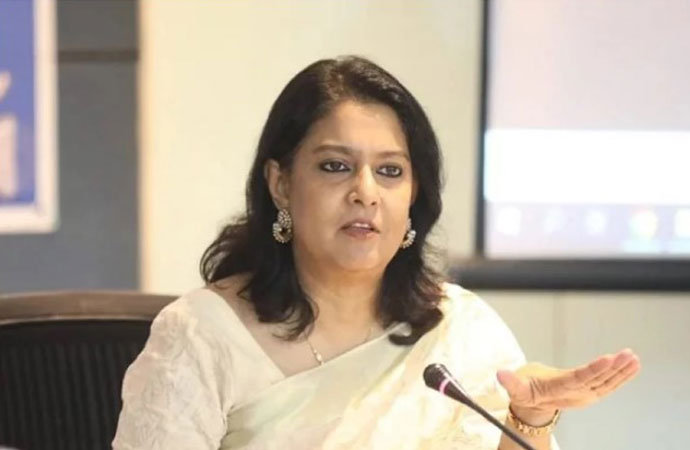
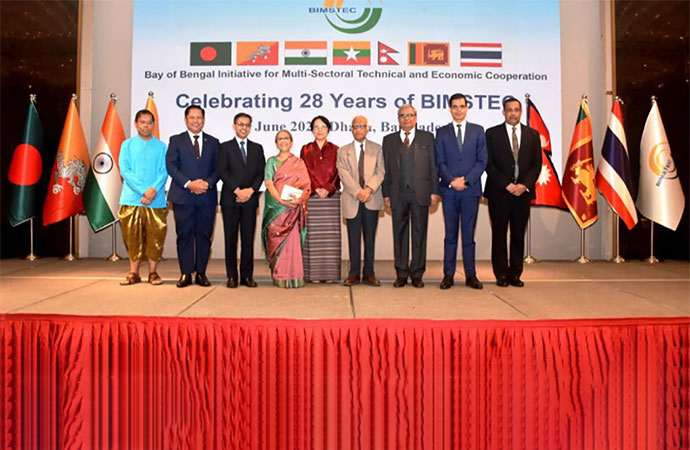








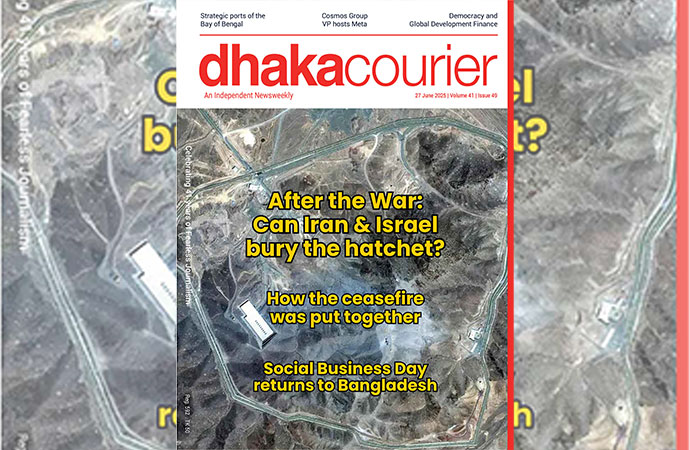
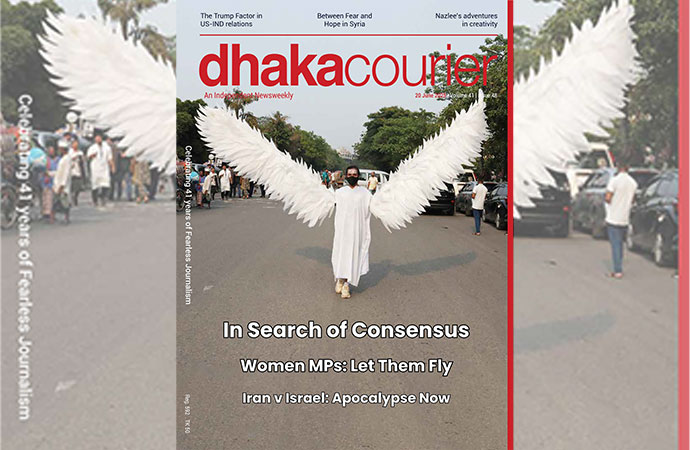
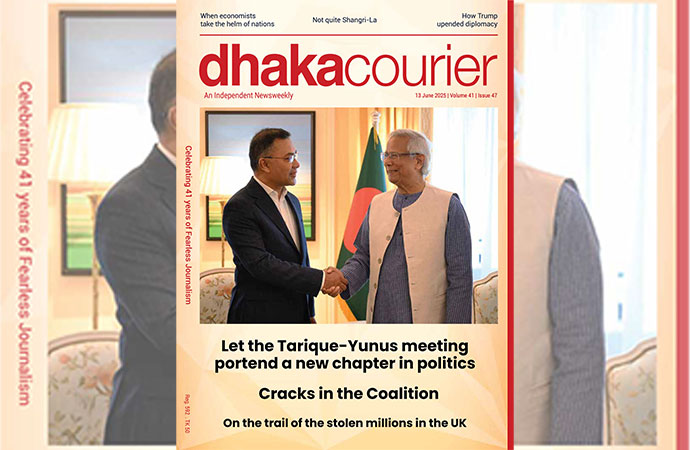
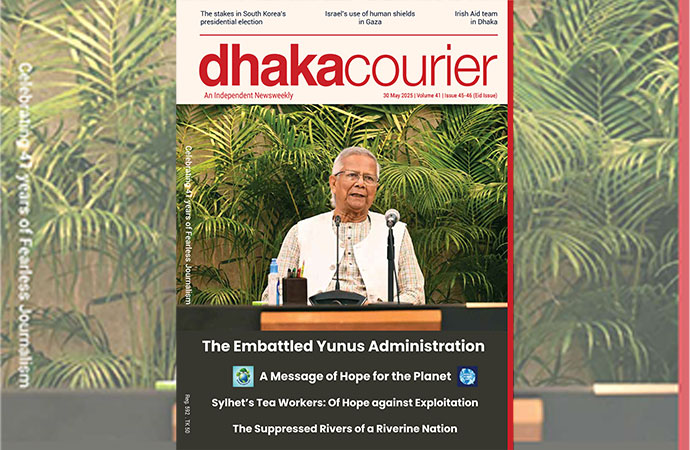
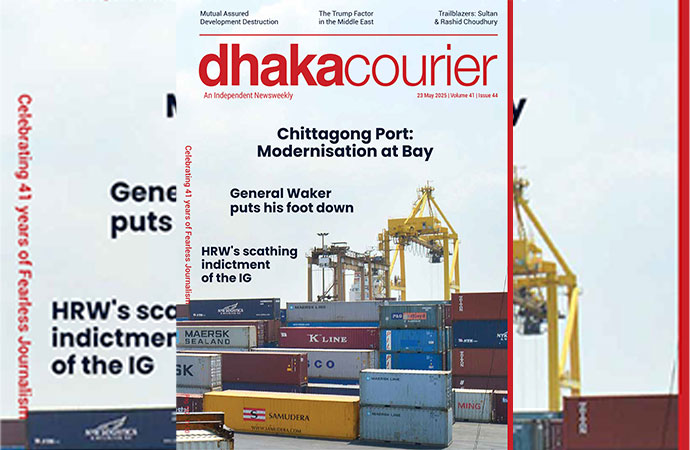
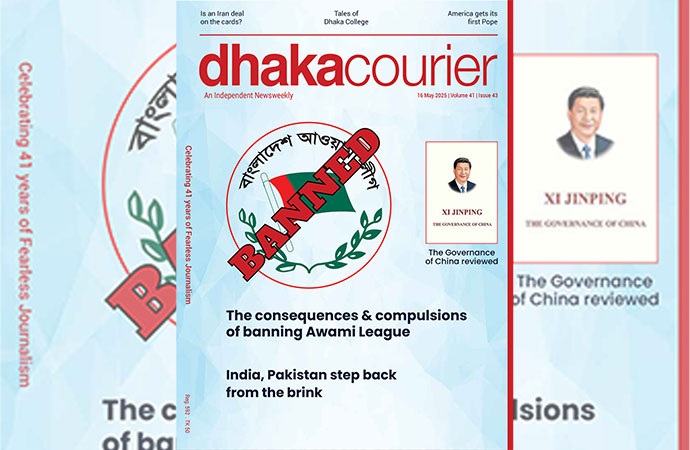
Leave a Comment
Recent Posts
Cosmos Group VP Nahar Khan hos ...
A visiting delegation from Meta, the parent company of Facebook, Insta ...
Break the gloom, build a bette ...
Emphasising the transformative power of social business and its strong ...
‘Mobocracy’ must not prevail
The US Supreme Court allowed the Trump administratio ..
Germany dependable partner in our development journe ..
15th edition of Social Business Day: Prof Yunus to j ..